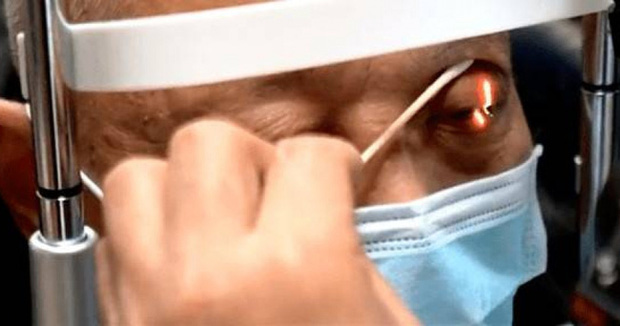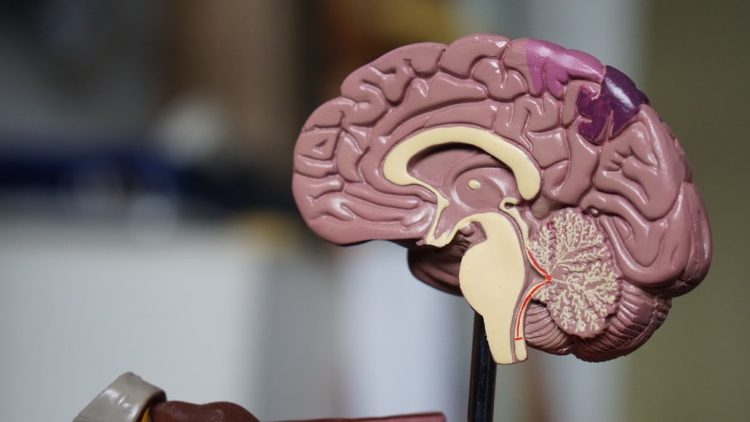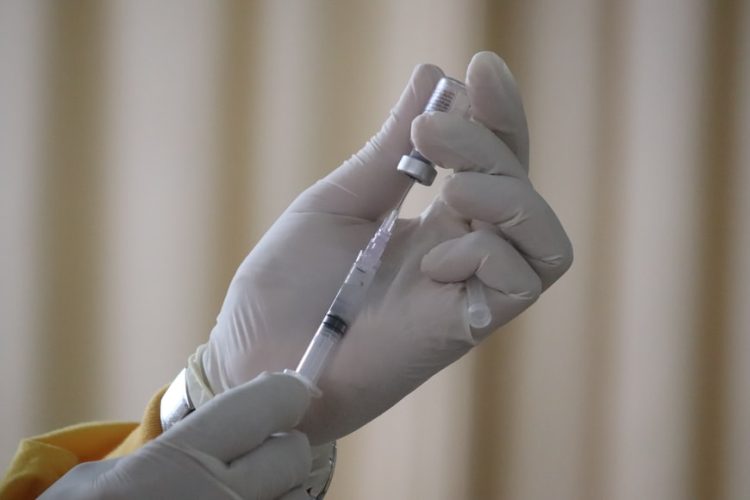Woman Claims to Have Been Living on Water Alone for the Last 41 Years

A Vietnamese woman claims to have given up solid food over four decades ago and survived on water spiked with a bit of salt, sugar and lemon juice ever since. 63-year-old Ms. Ngon is famous in her native Tan Trach commune, Vietnam’s Long An province, for her very unique diet. For the last 41 years, […]
Man Claims Sandwich He Ate Five Years Ago Has Been Causing Him to Fart Ever Since

A UK man who ate a festive ham sandwich at a Christmas market he was visiting with his family in December of 2017 claims the snack has been causing him uncontrollable flatulence ever since. Tyrone Prades has been living a nightmare for five years, and he claims that it has all been because of a […]
Dangerous Fat-Dissolving Injections Sold as “Speedy” Weight Loss Treatments

Vietnam is reportedly dealing with an increasing number of serious medical issues caused by fat-dissolving injections sold by shady beauticians and cosmetic treatment clinics. Targeted weight loss and fat loss, in particular, are incredibly difficult, as most reputable fitness experts will tell you. They require a lot of physical exercise and a calorie-restricted diet, and […]
9-year-Old Boy’s Immunity to Pain Is a Curse, Not a Blessing

Zach Skitmore, a 9-year-old boy from Norwich, in Norfolk, UK suffers from a rare genetic condition that makes him immune to pain. That may sound like a real-life superpower, but in reality, it only makes him more vulnerable. Zach’s parents started noticing something strange about his reactions to pain very early on. When he was […]
Man Inhales Drill Bit During Dental Procedure

As if we needed another reason to be scared about going to a dentist, it seems those terrifying drill bits can do more than bore through teeth, they can get lodged in your lungs. Imagine going to a dentist for a routine procedure like getting a tooth filled, and then hearing that you might have […]
Rare Genetic Condition Makes 10-Year-Old Boy Feel Constantly Hungry

David, a 10-year-old boy from Singapore, was diagnosed with Prader-Willi Syndrome, a complex genetic condition that makes him feel hungry no matter how much he eats. Imagine filling your stomach with copious amounts of nutritious food and never actually experiencing that sensation of fullness that we know as ‘satiety’. That is what David Soo, a […]
Crocodile Tear Syndrome Makes Man Cry Every Time He Eats

A Chinese man was recently diagnosed with “crocodile tear syndrome”, a rare medical condition that causes people to shed tears whenever they eat. Crying is usually triggered by a strong emotional reaction, such as sadness, pain or uncontrollable laughter, but in rare cases it can be activated by something as benign as eating. Last year, […]
Young Man Has to Live With Black Mold Growing in His Brain

A Rhode Island has been suffering from an extremely rare fungus-caused condition that literally causes black mold to grow in his brain. Tyson Bottenus, a 35-year-old man from Rhode Island is only one of only 120 documented cases of infections with Cladophialophora bantiana, an exotic fungus known as “black mold”, since 1911. In his case, the […]
Turkish Man Has Been Testing Positive for Covid-19 for Fourteen Months

A 56-year-old man from Turkey has spent the last fourteen months of his life in isolation, testing positive for Covid-19 no less than 78 times ever since becoming infected in November of 2020. Muzaffer Kayasan from Turkey has been confined to hospitals and his own home for over a year, and is desperately looking for […]
Man Suffering From Severe Headaches Lived With Bullet in His Skull for 20 Years

A young Chinese man who had been experiencing severe headaches lately was shocked to learn that he had been living with a bullet in the left side of his skull for about two decades. Xiao Chen (pseudonym), a 28-year-old man from Shenzen, had been suffering from random headaches for as long as he could remember, […]
85-Year-Old Man Gets 11 Covid-19 Vaccine Jabs, Claims He’s Never Felt Better

An 85-year-old man from India’s Bihar state is being investigated after claiming to have received 11 Covid-19 vaccine doses in less than a year. Brahmdeo Mandal, a retired postman from Bihar’s Madhepura district was stopped from getting what he claimed would have been his 12th Covid-19 shot at the beginning of January. Although it’s unclear […]
Man Allegedly Stares Directly Into the Sun For an Hour Without Blinking

An Indian pensioner recently set a bizarre new national record after allegedly spending an entire hour staring directly at the sun without sunglasses and without blinking once. The 70-year-old retired Government officer from India’s Uttar Pradesh state was identified as Mr. MS Verma. He apparently trained for this incredible feat for 25 years, after being […]
Man Suffers Collapsed Lung by Singing His Heart Out During Karaoke

A 25-year-old man wound up in the emergency room with a collapsed lung after straining himself while singing karaoke at a friend’s birthday party. Chinese media recently reported the bizarre case of a young man from Changsha, in China’s Hunan Province, who suffered a serious lung injury by trying to reach the high-pitch tones during […]
Young Father Sets Up DIY Lab to Create Medicine For His Son

Unable to find the medicine his two-year-old son desperately needs in China or even import it from abroad, a loving father set up his own laboratory and synthesized the drug himself. Two-year-old Haoyang suffers from Menkes Syndrome, an ultra-rare genetic disorder that affects how copper is processed and absorbed in the body. The boy cannot […]
Indian Doctor Eats Cow Dung, Claims It Cleans the Body, Mind, And Soul

Dr Manoj Mittal, a child specialist from Haryana, in India, sparked controversy online after appearing on camera to praise the benefits of eating cow dung, while feasting on it himself. Traditional Indian medicine has long been promoting cow dung as a cure-all that can even stave off conditions like cancer and Covid, but this didn’t […]
